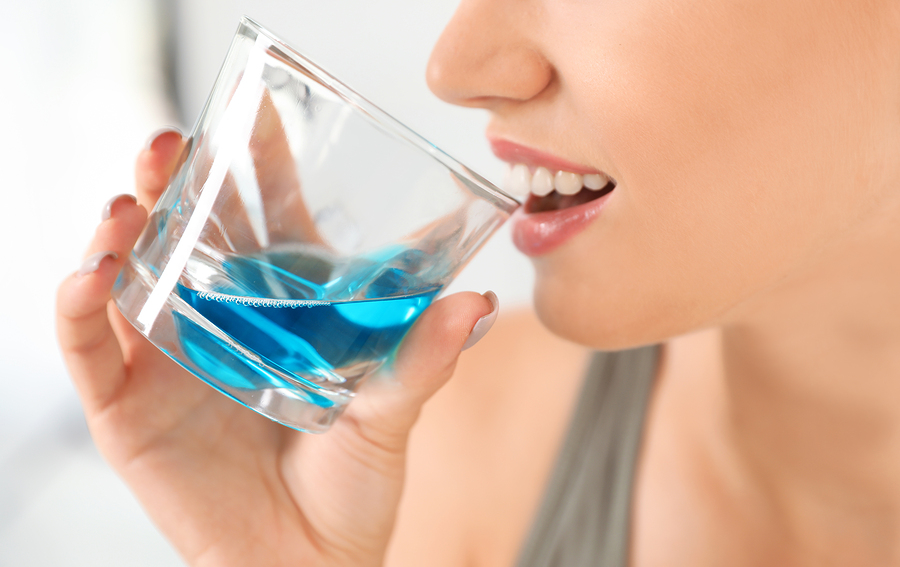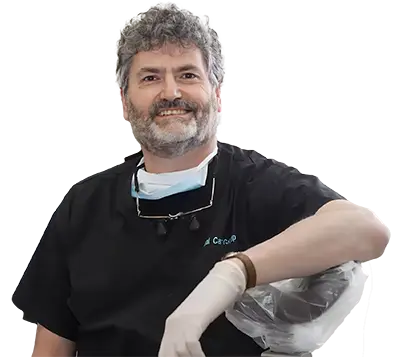We’ve all seen the ads – swig some mouthwash for 30 seconds, and your teeth will be whiter, your gums healthier, and your mouth free of bacteria.
It sounds too good to be true, doesn’t it? Here’s something you mightn’t have known: it is too good to be true in many cases!
You might be surprised to learn that mouthwash actually has several harmful risks if you use it as part of your dental hygiene routine.
How does antibacterial mouthwash work?
As the name suggests, antibacterial mouthwash is designed to kill bacteria.
That’s because antibacterial mouthwash contains alcohol – usually ethanol – with inherent antibacterial qualities.
Through a process known as protein denaturation, alcohol breaks down the protective membrane that surrounds bacteria.
Without the membrane, the bacteria are exposed. The core components that make it up cease to function, causing bacteria to die away.
Not only does alcohol kill bacteria, but in many cases, it’s a power deodorant, too.
With these features, it’s no wonder alcohol pops up not just in mouthwash but in disinfectants and hand sanitisers everywhere!
But why is that a problem?
Since alcohol is such a potent bacteria killer, it should be an essential part of your dental hygiene routine, right?
Unfortunately, this article isn’t titled “why we love mouthwash” – needless to say, using mouthwash can also cause just as many problems as it fixes…
Mouthwash doesn’t discriminate
Mouthwash is an equal-opportunity bacteria killer. It doesn’t matter what type of bacteria it is; mouthwash will kill it.
The problem is that not every type of bacteria is bad for you – out of the 700 different types of bacteria you’ll find in the human mouth, the vast majority are benign. In fact, some of that bacteria is actually good for you!
Among other things, bacteria are responsible for:
- Digesting food: probiotics help break down certain foods and keep your gut healthy
- Protecting your teeth: the A12 microbe neutralises acid and slows down plaque growth
- Fighting bad breath: according to some research, the bacteria K12 kills other bacteria responsible for halitosis (bad breath)
By including mouthwash in your dental hygiene routine, you’re killing the bad bacteria and getting rid of the good stuff, too.
Needless to say, this isn’t an ideal solution!
The dangerous consequences of dry mouth…
…and how mouthwash makes things worse
When it comes to dental health, saliva plays an important role helping out with:
- Digesting certain foods and nutrients
- Neutralising acidic food
- Washing away bad bacteria
Needless to say, having a dry mouth can lead to several problems!
Unfortunately, frequent use of mouthwash can make this problem even worse.
Alcohol-based mouthwashes (read: the vast majority of them) have a habit of drying out the tissue in your mouth.
As alcohol evaporates, it takes saliva and other moisture with it, worsening cases of dry mouth.
Not to mention, mouthwash stings, meaning it can aggravate ulcers and sores.
How mouthwash can make stains even worse
Another inevitable consequence of using too much mouthwash? Tooth stains.
Let’s be perfectly clear: we aren’t suggesting that mouthwash leaves your teeth with an unnatural tinge.
However, it can make it easier to acquire said tinge!
Since alcoholic mouthwash is so strong, it can often wear down the protective shield that protects your teeth and gums. Mouthwash cleans away saliva and mucous, leaving your teeth exposed to staining from coffee, tea, and wine, among other things.
Not only that, but it opens you up to attack from bad bacteria and plaque.
And then you start using more mouthwash to remedy the problem; next thing you know, you’re trapped in a vicious cycle!

So how, then, should I keep my mouth clean?
It’s simple: regular brushing and flossing!
It may sound like that’s our answer to everything. The reason for that is because it may as well be!
The vast majority of dental problems can be fixed with effective brushing and flossing. From tooth decay, to gum disease, to bad breath, brushing and flossing are the best, healthiest fix.
Our dentist and most dental hygienists don’t recommend getting too used to using mouthwash. One of the biggest issues with mouthwash is that it can make you sloppy in the rest of your routine—that is, it can make you feel as if your mouth is clean when, in fact, it isn’t.
An Armadale dentist can help you develop a better dental hygiene routine by…
Talking to you about probiotics
We briefly touched on probiotics above and their role in helping you digest food. However, that isn’t the only thing probiotics do!
According to some research, probiotics may also be able to assist with:
- Gum bleeding
- Gingivitis
- Preventing plaque buildup
- Bad breath (halitosis)
Different probiotics have different effects. As part of our duty to build you a better dental health routine, our Armadale dentists can also provide advice on probiotics and whether particular probiotics may be able to assist with your unique dental requirements.
Non-alcoholic mouthwash
Many of the problems inherent in heavy mouthwash usage come from its alcohol content.
Luckily, there are several types of mouthwash out there that contain no alcohol whatsoever.
Your Armadale dentist can help you find alcohol-free mouthwashes that are better for your oral health.
Stuck in a rut? Call an Armadale dentist
We dentists recommend making an appointment at least once a year, even if your teeth are perfectly healthy.
As you now know, even little things like mouthwash usage can potentially affect your oral health.
You mightn’t know these things. But your dentist sure does!
Our Armadale dentists know their stuff. During your consultation, we’ll educate and inform you, pointing out potential dental problems and giving you the tools needed to overcome them.
Overdue? Set things right by booking your appointment today – call us on (03) 9509 1500, or book online now!

